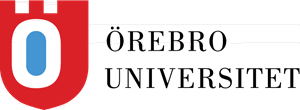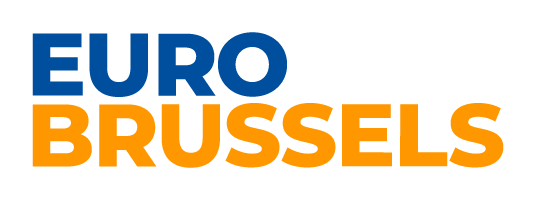Call for Panels Submission
We encourage panels that are well-balanced, multidisciplinary, geographically and gender diverse. We also welcome different types of sessions such as debates, roundtables, workshops, and other non-conventional formats. More information about rules for panel composition and submission can be found below. We kindly ask that all interested partners carefully read and adhere to these panel composition rules. The CPDP.ai Programming Committee reserves the right to propose changes to panel submissions as a condition for acceptance, or to decline the submission altogether should it continue to not adhere to the rules below.
Call for Panels 2025
CPDP.ai will assess the relationship between fundamental rights and technological progress, highlighting the crucial role that data protection must play in safeguarding individuals in a world where nearly every digital action is potentially surveilled for large databases, which may be used for unaccountable and discriminatory purposes by states and companies. If you are eager to contribute to CPDP.ai’s mission, then we invite you to suggest a panel for the upcoming edition.
The calls for research papers and for interactive workshops are being published In October and December respectively.
This call for panels is aimed at research organisations (universities, research projects, think tanks and others), public sector bodies, and civil society groups active in the digital governance field. We welcome proposals that explore the many challenges of our digital lives. In an increasingly surveilled and digitised world and amidst the complexities of technological innovation and geopolitical tensions, what role can data protection play in ensuring the protection of fundamental rights? The world is watching.
We encourage panels that are well-balanced, multidisciplinary, and diverse in terms of geography, culture and gender. We also welcome different types of sessions, including debates, roundtables, workshops, and non-conventional formats. If you are uncertain whether your idea fits into the call for panels, or should be submitted to the call for workshops, please contact the team. More information about the rules for panel composition and submission can be found below.
We kindly ask that all interested partners carefully read and adhere to these panel composition rules. The CPDP.ai Programming Committee reserves the right to propose changes to panel submissions as a condition for acceptance, or to decline the submission altogether should it not adhere to the rules below, or for any other reason relating to the quality of the panel, or its suitability in the context of the conference.
For-profit organisations interested in organising a panel at CPDP or otherwise wishing to support the conference can refer to our sponsorship page or to reach out to info@cpdpconferences.org for further information.
KEY DATES
- Call for panels opens: 19 September 2024
- Deadline for submission: 8 December 2024 (extended deadline)
- Notification sent to panel convenors: 18 December 2024
- Panel organisation finalised: February 2025
- Dates of CPDP.ai 2025: 21-23 May 2025
Computer science and data protection officer-related topics
We welcome submissions on any novel and intriguing subjects related to digital society - including but not limited to legal topics and including but not limited to data protection topics. The below questions constitute a non-exhaustive list of topics which would fall within the ambit of the conference. This year, we will have dedicated tracks for computer science and data protection officer-related topics. The submission form allows you to present your proposal for consideration for these tracks.
- What does the spree of recent digital legislative initiatives, and digital legislation – in the EU and beyond – imply within and beyond law, and which perspectives might usefully be brought to bear on unpacking these implications?
- In a digital society in which change and novelty seem ubiquitous, how can we maintain social and legal stability, and in which respects, and how far, should this be a goal?
- How are ongoing political shifts evident in the EU – and beyond - reflected in our understanding of privacy and data protection, and what are the implications of this?
- How do different data protection stakeholders best work together to address upcoming challenges in privacy and data protection?
- How is the interplay of innovation and regulation constructing the social dimension of the digital world (e.g. considering the Health Data Space, eIDAS)?
- How do legal understandings of data protection and privacy differ from and enable or limit popular conceptions of privacy?
- How does citizen and civil society participation in data protection and AI regulation relate to the role of experts and academic specialists?
- Can the AI Act effectively protect fundamental rights?
- What type of norms and rules should apply to Large Language Models and Generative AI, and how can rules be enforced, locally and globally?
- How does online and offline culture shape the privacy and data protection agenda?
- How are the Digital Services Act and the Digital Markets Act affecting norms and practices outside Europe?
- How can data protection practices and regulations safeguard human dignity as automation and artificial intelligence use increase?
- Can surveillance capitalism be justified? How?
- How do authoritarian and democratic structures differ in their use of digital technologies?
- Data protection officer, privacy officer, personal data advisor… what’s in a name? Or, how do different organisations deal with data protection requirements?
- How do data protection officers work together with supervisory authorities?
- What is the evolving role of the data protection officer in a changing world where legal and technological evolutions, like the AI Act, challenge them more and more?
- What is the technologists view on recent regulation proposals with a strong technical component, like the EU Identity Wallet or the Digital Euro?
- Beyond anonymisation: privacy by design, privacy enhancing technologies and transparency enhancing technologies in a new technical constellation.
RULES ON PANEL SUBMISSION AND COMPOSITION
CPDP.ai nurtures and enforces a set of rules on panel submission and composition to ensure fair representation and open discussion in an atmosphere of mutual respect. Please read the rules below carefully, even if you are an experienced contributor to CPDP.ai. If these rules are not adhered to, the CPDP.ai Programming Committee reserves the right to step in and address any issues or to decline the panel submission, or for any other reason relating to the quality of the panel, or its suitability in the context of the conference. For any questions or clarifications, please reach out to us at info@cpdpconferences.org
- Please ensure you can meet the financial conditions for panel submission. The panel fee is € 1.500, which includes conference entry for the moderator and the 4 panellists for 3 days. All travel and accommodation costs are the responsibility of the panel organiser and participants.
- By proposing a panel, you promise to adhere to the CPDP.ai Code of Conduct.
- Please aim to have maximum 1 moderator and 4 panellists. Participants cannot double up roles. Requests for more or fewer than 4 panellists will be considered on an exceptional and motivated basis. Maximum 1 hybrid panellist will be considered per panel and costs € 300.
- Panellists at CPDP.ai appear only once in each role - i.e. panellists cannot speak twice, or moderate twice at the conference. Please consult your panellists to make sure they do not already appear in another panel in the same role. If panellists are proposed for more than one panel, the organisers suggest they appear in the panel they accepted first.
- Panels must be balanced in terms of the geographical, cultural, gender and other identities and perspectives of the panellists, and in the disciplinary and professional viewpoints that they represent. The geographical balance should be such so that there are no more than 2 people from the same country and at least 3 countries represented on a panel. The balance between gender identities should include consideration for fluid identities and non-binary persons. Panels cannot only include legal professionals, academics or commercial actors.
- If you have a special reason for proposing a panel which does not correspond to this spread, please let the CPDP.ai Programming Committee know during the panel submission process, in the ‘Panel Description’ box, or reach out to info@cpdpconferences.org
- The panel organiser cannot have more than 2 participants on the panel.
- Please ensure that panellists represent differing perspectives and viewpoints on the chosen panel topic. Debate and open discussion are especially encouraged.
- Between the introductory remarks and the Q&A, each panellist speaks once and for the same amount of time as other panellists.
- The last 30 minutes of every session must be allotted to Q&A interaction with the audience. As we aim to facilitate different panel formats, the CPDP.ai Programming Committee will also consider panel submissions that integrate audience questions and involvement from the start.
- CPDP.ai 2025 encourages new ideas for panel formats. If you would like to propose an alternative format, please include this information during the panel submission process in the ‘Panel Description’ box.
- CPDP.ai reserves the right to choose the moderator. If you have a preference, please let us know during the panel submission process, in the ‘Panel Description’ box.
- Owning to the fact that CPDP.ai receives many panel submissions each year, ordinarily, each institution/organisation will only be allowed to host one panel at the conference.
- Panel compositions should be finished and confirmed (or very nearly finished) by 7 February 2025. If a panel is still problematic at this point, the CPDP.ai Programming Committee reserves the right to take charge of the organisation of the panel.
- Panel organisers and participants maintain an open policy about how they are financed, affiliated, and networked. Think tanks and other research organisations with a profile linked to private companies and industry are invited to participate as sponsors. The CPDP.ai Programming Committee reserves the right to refuse an application in case of serious doubts.






















